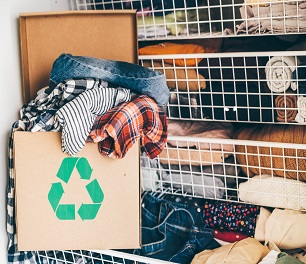Bisphenol-A (BPA) Testing Service - Textile Material
Our service provides expert guidance on Bisphenol-A (BPA) compliance, focusing on consumer safety in textiles. Following the landmark 2022 settlement regarding BPA in polyester-spandex socks, we help businesses navigate regulatory requirements and assess the risks of BPA in their products, ensuring informed consumer protection and responsible sourcing.
Bisphenol-A (BPA)?
Bisphenol-A is a well-studied chemical, known to cause developmental and reproductive harm. It was added to the Proposition 65 list of chemicals in 2015. BPA is mostly used to make polycarbonate plastic, epoxy resins and thermal paper. In addition, BPA may be used as dye-fixing agents for polyester and polyamide textiles. BPA can be used in the production of flame retardants, fungicides, antioxidants and in PVC production. It may also be used in spandex production for antistatic properties.
Why have concerns been raised over BPA in clothing?
In May 2022, the first settlement was reached regarding socks made mainly of polyester and Spandex containing BPA. Unlike previous Prop 65 settlements for non-textile products, this case involved a failure to warn consumers about BPA in socks. BPA exposure can occur through skin contact while wearing the socks or hand-to-mouth contact after handling them. Furthermore, it is observed that an increasing number of non-governmental organizations (NGOs) have initiated BPA studies on products including sports bras and athletic wear, etc.
What SGS can help?
We now offer a tailor-made BPA Test Program as a one-stop solution, providing client support for compliance and product integrity. Focus on the market requirements and worldwide regulations governing SGS’s optimized target list of BPA substances list.
- Bisphenol-A (BPA)
- Bisphenol-S (BPS)
- Bisphenol-F (BPF)
- Bisphenol-AF (BPAF)









